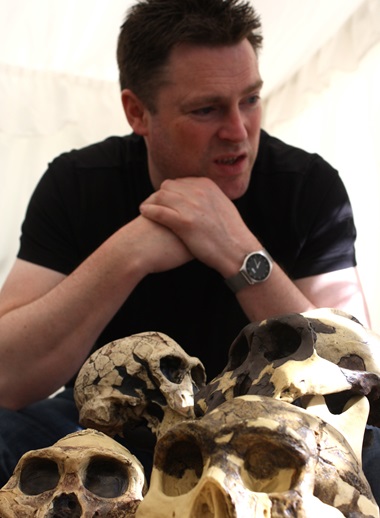
DIAS Minds Group
The DIAS MINDS GROUP is a new initiative at the Danish Institute for Advanced Study (DIAS) bringing together scholars engaged in the study of mind, cognition, and behaviour.
Modern cognitive science emerged in the period after the second world war, an era marked by technological optimism in the face of global military challenges. Spurred on by advances in computational technology, scientists began to see the mind as a machine for solving problems. Is this view of the mind still relevant in the face of today's global challenges? What might a programme of research for studying the mind look like if it were set up today? And how have approaches to the study of the mind already moved away from the earlier machine-based model?
In this series of talks, philosophers and cognitive scientists will respond to these questions, presenting alternative foundations for studying the mind in a manner suitable for a future in which humanity’s major challenges arise from the fact that human activity has reshaped the planet, and from the fact that human activity will have to be reshaped in turn if our planet is to have a sustainable future.
Program

April 6th, 11:15-12:15pm
DIAS Auditorium
Edward Baggs, University of Southern Denmark
The human sciences in the Anthropocene
Humans have long inquired about our place in nature. But is this question still meaningful? Geologists propose that we have entered the Anthropocene, an epoch in which life processes on our planet are everywhere decisively influenced by human activity. From microplastics that enter animal bodies to the particle composition of the atmosphere, life on planet Earth is everywhere under human influence.
What does this mean for the human sciences? Since the Enlightenment, the rational individual has been the sovereign subject of the human sciences. However, the major challenges of our time require us to seek cooperative solutions. Living within the boundaries of the Earth system requires a human science built on a foundation of sustainable community instead of competitive individualism. The Anthropocene presents an opportunity to rethink our relation to our planet, and to each other.
Learn more and sign up here

May 18th, 11:15-12:15pm (online)
Mark Maslin, University College London
Our Human Planet: co-evolution of human society and its environmental impact
Meteorites, mega-volcanoes, plate tectonics and now human beings; the old forces of nature that transformed Earth many millions of years ago are joined by another: us. Our actions have driven Earth into a new geological epoch, the Anthropocene. For the first time in our home planet's 4.5-billion year history a single species is dictating Earth's future.
To some the Anthropocene symbolises a future of superlative control of our environment. To others it is the height of hubris, the illusion of our mastery over nature. Whatever your view, just below the surface of this odd-sounding scientific word, the Anthropocene, is a heady mix of science, philosophy, religion and politics linked to our deepest fears and utopian visions. Prof. Mark Maslin traces the co-evolution of human society and its environmental impact revealing when and why humans began to dominate the Earth and shows us what the new epoch means for all of us.
Learn more and sign up here

June 15th, 11:15-12:15pm
DIAS Auditorium
Ted Toadvine, Pennsylvania State University
When is the Mind? Anthropocene Time and the Memory of the World
Although the Anthropocene is a contested and problematic notion, both in its narrowly scientific sense and in its broader popular usage, it nevertheless makes salient the challenge of understanding the relation between “lived” human time and “deep” geological time.
In this context, postcolonial historian Dipesh Chakrabarty has described the advent of the Anthropocene as the breaching of two distinct temporal registers: the “global” calendar of human history and the unthinkably vast span of “planetary” time. According to Chakrabarty, the shock of the Anthropocene is due to the incommensurability of global and planetary temporalities, so that we encounter the planetary only as a “radical otherness.”
In response, I argue that this binarism of chronologies fails to capture the plexity of our embodied temporal experience. Making sense of our entanglement in planetary and evolutionary temporal scales requires both a phenomenology of deep time and, in parallel, an appreciation of the ontological memory of the world.

October 12th, 11:15-12:15pm
DIAS Auditorium
Louise Barrett, University of Lethbridge
Looking forward to a beastly future: Thinking like an Animal and Rejecting the Myth of Transcendence
Studying mind in the Anthropocene—the “age of humans”—will benefit from an ever-deeper recognition of our status as animals, and the interdependence of organism and environment. This, in turn, requires we give up the organism’s mind as a product of the brain alone, as a kind of hermetically sealed inference engine.
We have made some progress in this direction in the cognitive sciences, with the rise of so-called “4E cognition”, but the message is not, it seems, getting through to those who are currently shaping our world, most of whom appear deeply invested in some form of transhumanism, and associated notions of transcendence: the assumption that we can and will escape the limitations of our “ape-brained meat-sacks”.
As a proud ape-brained meat-sack, I want to make the case for our beastliness, and dispute the idea that “nature is what we are put in this world to rise above” (as Katharine Hepburn’s character famously put in “The African Queen”). To survive the Anthropocene, we must learn to accept ourselves as porous, interdependent animal processes, not as atomised plug-and-play machines.
As Pär Segerdahl has argued “… the opposite of human is not “animal” but the over-intellectualized, lofty idealizations of what it means to be human”. As such, this talk represents an extension of Ed Baggs’ thoughts on the human sciences in the Anthropocene: not only do we need to abandon individualism, as Ed argues, but also our peculiar ideas of human exceptionalism.

November 16th, 11:15-12:15pm
DIAS Auditorium
John Sutton, Macquarie University
Mental processes are not only in your head but interlaced with the world around you: Interdependence and vulnerability in the cognitive sciences
Theorists of situated or distributed cognition claim that mental processes – remembering, feeling, wondering, and so on – are not all only in the head. We are dependent and interdependent creatures – not just in childhood, illness, and old age, but by nature.
We rely cognitively and emotionally, as well as economically and politically, on the complex and interacting ecologies in which we are embedded: on other people, on artifacts and technologies, on institutions and practices, and on architecture, familiar and sustaining places, on the earth.
It’s partly because our minds are thus relational or meshing that we are vulnerable creatures: removing, disrupting, depleting, or threatening the people, places, and resources we depend on is mental and affective violence as well as moral and ideological damage.
I pursue this theme by examining relations between place, memory, and skill, in both critical and constructive discussions of how theories of mind have influenced cultural and political practices, and how they might do so differently in the future.
About the DIAS Minds Group
The DIAS Minds Group is a transdisciplinary research group based at the Danish Institute for Advanced Study (DIAS). It brings together scholars engaged in the study of mind, cognition, and behaviour, both as a general scholarly endeavour and as the study of mindful behaviour in different social practices (e.g., in sports, health, performing arts, organisations, the market, urban environments).
The DIAS Minds Group is open to researchers in DIAS and across SDU, as well as visiting researchers. The ambition is to gather researchers from all faculties at SDU in a transdisciplinary dialogue about philosophical, theoretical, and empirical questions in cognitive science, phenomenology, philosophy of mind, cognitive ethnography, and linguistics.
To accentuate the strengths of the researchers currently engaged in such work at SDU, the DIAS Minds Group gives priority to work on social and embodied aspects of mind and cognition, including intersubjective phenomenology, ecological psychology, (radical) embodied cognitive science, distributed cognition, and activity/interactivity-based approaches.
The purpose of creating the DIAS Minds Group is (i) to position SDU as a broad and multifaceted research institution in the areas mentioned above, with DIAS spearheading interdisciplinary collaboration; (ii) to provide a platform for organising scholarly activities, such as conferences, symposia, and outreach initiatives, in collaboration with the DIAS administration; and (iii) to scaffold research grant applications for projects on mind, cognition, and behaviour.
ORGANISERS
The DIAS MINDS GROUP is organised by:
DIAS Senior fellow, Professor Sune Vork Steffensen
DIAS fellow, Assistant Professor Ed Baggs
DIAS fellow, Assistant Professor Anthony Vincent Fernandez
#DIASMinds
